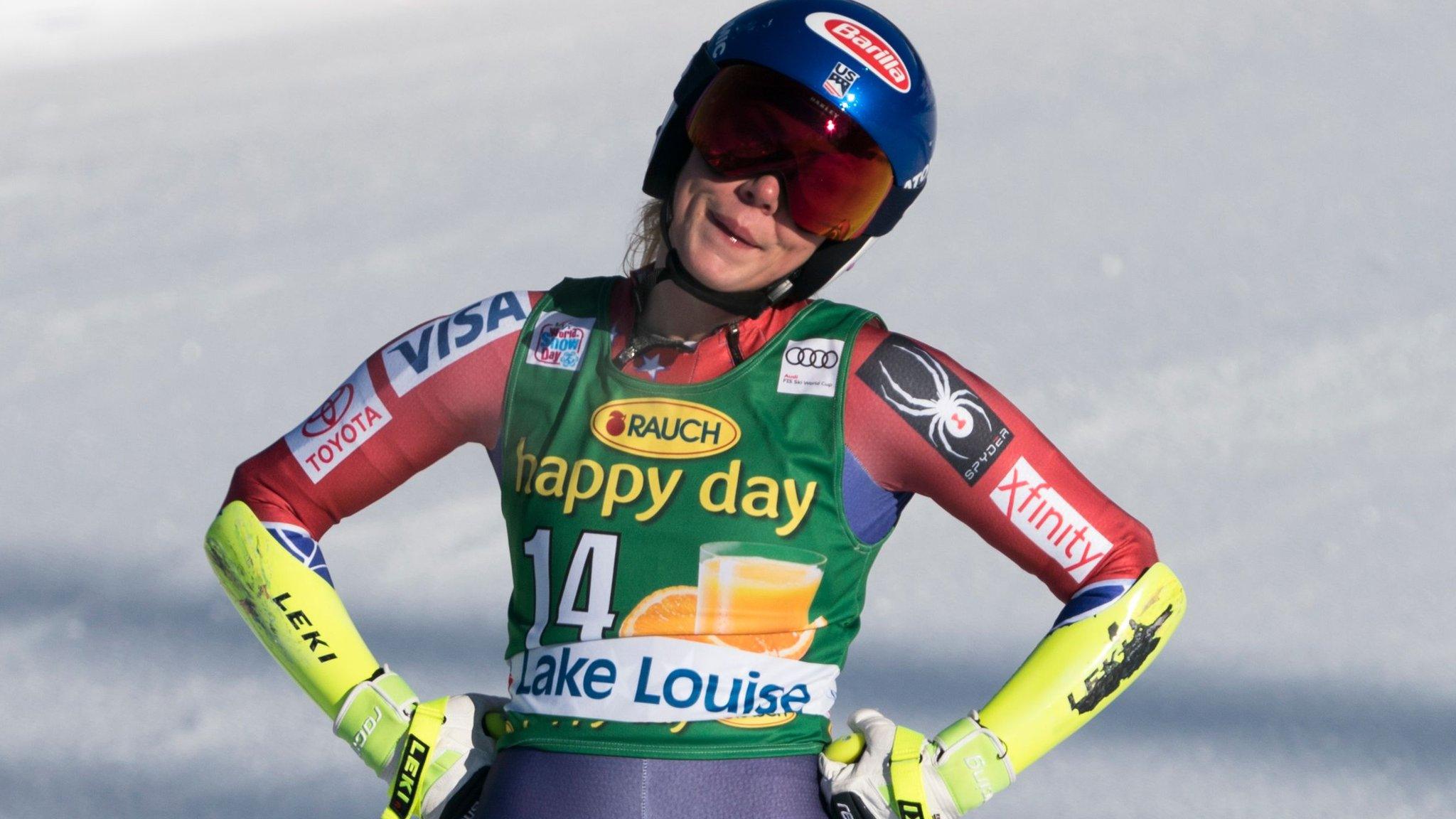Russian doping: Winter Olympics places for clean Russians 'right'
- Published
'Fair and justifiable' to allow clean Russians to compete
Allowing clean Russians to compete at the Winter Olympics under a neutral flag is "fair and justifiable", says former Great Britain bobsleigher John Jackson.
The International Olympic Committee (IOC) banned Russia from February's Games in Pyeongchang, South Korea on Tuesday after an investigation into allegations of state-sponsored doping at Sochi 2014.
But athletes who can prove they are clean will be allowed to compete under a neutral flag as an 'Olympic Athlete from Russia' (OAR).
"It's right not to allow Russia to compete but allow the clean Russian athletes to compete," said Jackson, who along with team-mates Bruce Tasker, Joel Fearon and Stuart Benson is in line for a bronze medal after the disqualification of two Russian teams from the 2014 Games.
"Athletes who have made sure they've done it to the best of their ability - not enhanced - should get the chance to compete."
Russia finished top of the medal table for those Games but have since dropped to fourth because of the number of athletes subsequently sanctioned for doping and stripped of their medals.
Alexander Zhukov, the president of the Russian Olympic Committee, did offer an apology to the IOC before it announced its sanctions.
Senior Russian figures vehemently deny many of the allegations and some Russian politicians had called for a boycott of the Games in South Korea, which begin on 9 February 2018.
But on Wednesday, President Vladimir Putin confirmed Russia would not prevent athletes from competing under the Olympic flag.
"We will certainly not declare any boycott, we will not prevent our Olympians from competing, if they want to take part in a personal capacity," news agencies quoted him as saying during a speech he made to announce his intention to run for a fourth presidential term next year.
'Some concessions for international pariah' - analysis
BBC sports editor Dan Roan
The punishment is unprecedented in Olympic history. This is a proud sporting superpower that uses such events to promote its image to the world. Not this time.
The hosts of next year's World Cup have just become an international pariah, with the life ban given to deputy prime minister and head of Russia 2018 - Vitaly Mutko - hugely embarrassing for Fifa.
Many will say the IOC should have done this 18 months ago before the Rio Olympics, and that even now they could have been tougher given the scale of the cheating and the damage done to clean athletes.
The fact that those athletes who meet the criteria and can take part will be called 'Olympic Athletes from Russia' seems a concession to to the country. Why not just 'Neutral Athletes'? President Bach also suggested the Russian flag may be flown at the closing ceremony in South Korea.
Yet this is still a dark day for Russian sport and President Vladimir Putin is now understood to be considering whether to boycott Pyeongchang 2018 altogether and forbid any Russian athletes to compete.
Focus on doping a huge disappointment - Mutko
'The most important decision in 123 years'
The decision to ban Russia has been described as the most important in the 123-year history of the IOC by a leading anti-doping chief.
A World Anti-Doping Agency-commissioned report by sports lawyer Dr Richard McLaren uncovered evidence to support allegations of state-sponsored doping between 2012 and 2015.
And a further inquiry led by former Swiss president Samuel Scmidt was enough to convince the IOC to make its decision on Tuesday.
Travis Tygart, head of the US Anti-Doping Agency (Usada), says the move is a "significant penalty" and is what "37 anti-doping organisations from around the world asked for".
"Over the past 120-plus years, no decision has been as important as this, with respect to the future viability and the integrity of the Games," Tygart told BBC Sport.
"Prior to today, the Olympic flame burned a lot less bright - but today people know that integrity matters, fair play matters, clean athletes' rights matter."
British Olympic Association chairman Sir Hugh Robertson said the decision was a "seminal moment in the battle against doping".
He credited the IOC and World Anti-Doping Agency (Wada) in "moving to restore the integrity of Olympic sport".
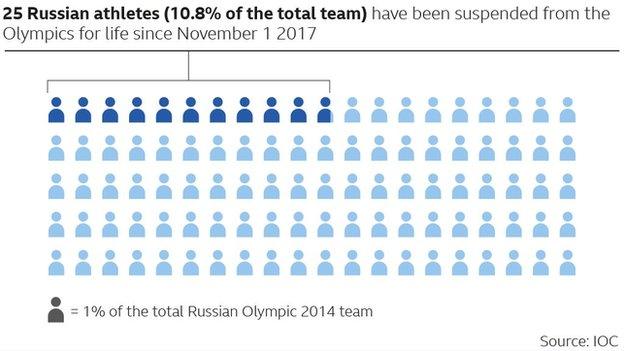
'He'll be looking over his shoulder for ever'
Russia's doping programme, which the McLaren report concluded involved about 1,000 athletes across 30 sports, was only uncovered when whistleblowers came forward.
They include Dr Grigory Rodchenkov, former head of the Moscow anti-doping laboratory; 800m runner Yuliya Stepanova; and her husband, former Russian Anti-Doping Agency official Vitaly Stepanov. All three are now in hiding, fearing reprisals.
Rodchenkov's lawyer Jim Walden said his client was "proud of the work that the IOC has done" but stressed that his testimonies had not been without a cost.
"He is enormously concerned for his family, who he had to leave in Russia," Walden said. "He knows, without any doubt, that he's going to be looking over his shoulder for the rest of his life."
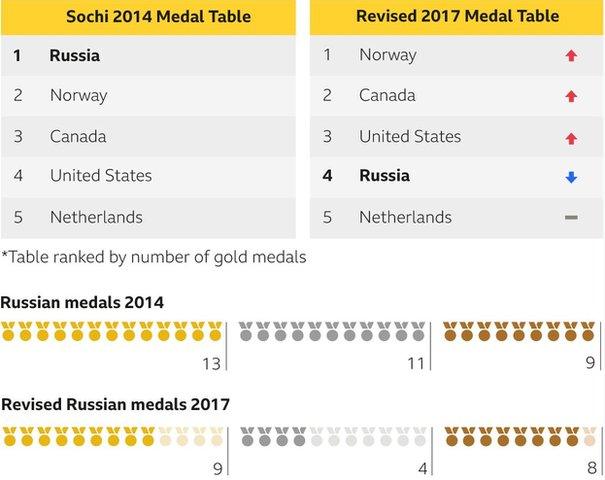
'Spitting in our face' - how the Russian newspapers react to IOC ban
- Attribution
- Published6 December 2017
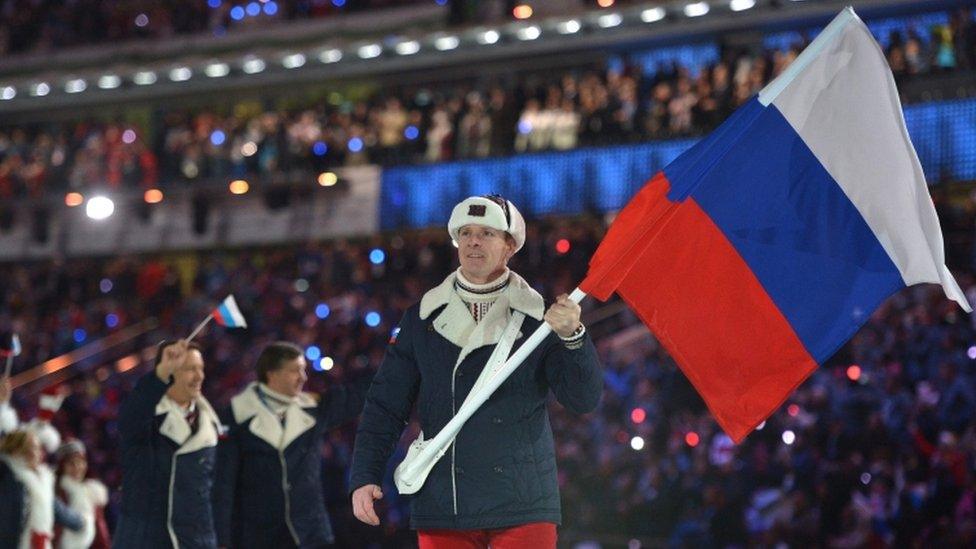
- Published5 December 2017
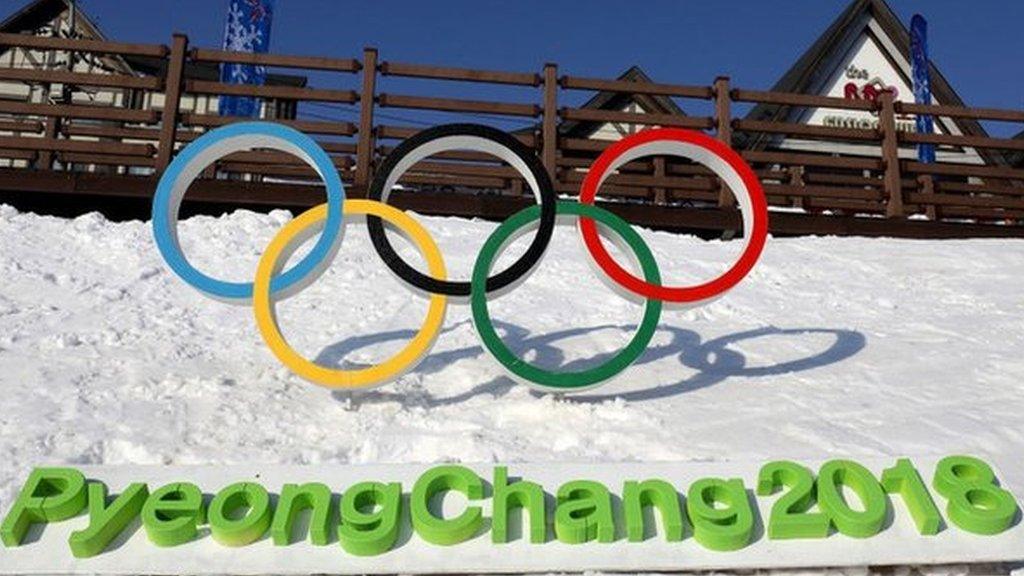
- Published4 December 2017
